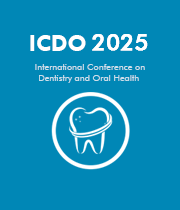Title: A 3rd cycle audit of the rate of unscheduled orthodontic appointments at Chesterfield Royal Hospital
Abstract:
Background: Emergency appointments in orthodontics are commonly caused by issues with fixed appliances and retainers. They are costly to clinicians and to the National Health Service. The unscheduled orthodontic appointment rate at Chesterfield Royal Hospital (CHR) has been previously reported at 5.96% in 2019, and 6% in 2011.
Aims: To establish the frequency, pattern and causes for emergency orthodontic appointments at CRH. As there are no established national guidelines, we applied a local standard set by previous audits at CHR, that no more than 5% of total appointments should be unscheduled appointments.
Methods: Data was collected between 2nd April 2019 and 10th January 2023. A data collection form should be completed by the treating clinician for every unscheduled appointment. 8,937 patients attended the orthodontic department for scheduled appointments during this time. 783 of these were unscheduled appointments. 247 forms were completed and analysed retrospectively.
Results: The unscheduled appointment rate at CHR was 8.76%, 3.76% higher than the set standard, and 2.8% higher than in 2019. The most common cause of unscheduled appointment was due to issues with fixed appliances (75%), particularly de-bonded brackets (35.2%) or fractured wire (%), followed by retainers (8.9%). 23.5% of patients had never previously attended an unscheduled orthodontic appointment. 8.1% of patients had attended 3 or more unscheduled orthodontic appointments.
Limitations: We included months where the department was shut down due to COVID-19. The cancellation of review appointments would have reduced the maintenance of appliances, and may have affected patients' compliance with dietary and appliance care instructions. Only 31.55% of clinicians completed a form after an unscheduled appointment. Some forms had missing data or were completed incorrectly.
Implications:
- Ensure correct techniques and moisture control is used when bonding brackets.
- Provide dietary and appliance care instructions to patients at each appointment.
- Modification of the data collection form to improve data analysis, and include details such as treatment completed.
- Encourage team members to correctly complete the forms to allow for high data recovery.
- Identify and counsel patients who have attended multiple unscheduled appointments.
- Re-audit in 12 months



